Editor’s note: Welcome to Attachment Parenting (AP) Month 2015! This year, we celebrate the theme: “Parental Presence: Birthing Families, Strengthening Society.” Beginning this year, APtly Said is the new home of AP Month, so check the blog each day of October for inspiration through our Daily Tips and other posts centered on the theme. Want to tell your story of how you balance(d) financial/career needs with being a new parent and providing presence in the early years? Send us your story!
Other AP Month events include the annual API Auction and Photo Event, plus an Oct. 19 API Teleseminar with Simplicity Parenting‘s John Kim Payne. Follow along as we read his book through API Reads, also housed here on APtly Said. There will also be special articles in the Parent Compass enewsletter from API’s cofounders and The Attached Family online magazine.
For this first day of AP Month, Yvette Lamb helps us remember that our challenges in providing parental presence in the early years are but moments that we will remember fondly and that help shape our child’s perception of what love is.
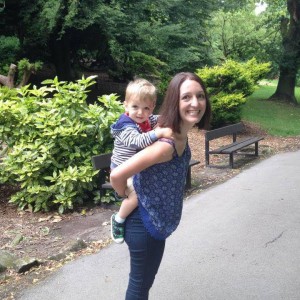 Children must go through almost a million phases, particularly in the early years. Sometimes I could barely get used to my baby’s latest pattern before he had moved on to a different one! Some phases — especially regarding sleep, settling, behavior or needing more attention than we are able to give — can feel never-ending at the time.
Children must go through almost a million phases, particularly in the early years. Sometimes I could barely get used to my baby’s latest pattern before he had moved on to a different one! Some phases — especially regarding sleep, settling, behavior or needing more attention than we are able to give — can feel never-ending at the time.
But of course they do pass, all of them.
And when we look back at testing moments — at days that seemed to stretch on forever — we mostly remember them differently: fondly, with love. They are just moments after all…moments that will pass…moments that become memories sandwiched in our hearts, reminding us how much our children have changed and grown — and how we have, too.
My son is only 2 years old, but recently I have found myself starting so many conversations with my husband with the words, “Do you remember when he used to…?” It might be about him refusing to sleep anywhere but on us or only at the breast or when rocked for at least 30 back-aching minutes, or cluster-feeding him every evening, or how he used to cut up my dinner so I could eat it with a spoon.
We told him about some of these memories this morning as he sat dawdling with his breakfast, smiling ear-to-ear at the little person he used to be but can’t remember.
“And when you were a tiny baby, you couldn’t speak. Everything was just ‘Waaahhhh’ until we rocked or fed you — sometimes all day.”
He laughed delightedly at us, “All day, all day, waaahhh!”
I do acknowledge that, back then, it didn’t always seem like much fun. I sometimes felt like I was living in a state of constant exhaustion, almost afraid of the baby I had made but didn’t understand. And yet, though I haven’t forgotten this, I know it was how early parenting had to be for me, for him. The rocking, the feeding, the tiredness, the uncertainty — it was necessary for me, and it was mere moments in the grand scheme of raising our boy.
We built foundations. We learned to adapt. And also to eat one-handed and survive on mere crumbs of sleep.
And now there are other phases, other challenges. There’s daycare and separation anxiety. There’s fussy eating and kicks at diaper changes. There’s lying down every night next to his crib, him demanding our hand be wedged uncomfortably through the bars while he unwinds from his day and eventually drifts off. Any gentle suggestion he go to sleep without us, or with us sat near but not practically inside his cot, are firmly and loudly rejected.
We are not going to leave him when he doesn’t want us to. But it can be difficult. We are always tired from our day by this point, and we want to have our dinner and unwind, not to mention finish any necessary jobs before our own bed calls. Sometimes after I’ve been on bedtime duty, I practically stagger down the stairs, disorientated from an uncomfortable 10-minute sleep on the floor or grumpy with hunger and the weight of the things I had planned, but will not get to do, for my evening. I have witnessed much of the same from my husband.
But last night I realized that my stress and concern over this current issue is completely misguided. We won’t still be doing this in 5 or 10 years. I know we won’t. Perhaps with some gentle encouragement or perhaps completely naturally, our son will learn to fall asleep without us near. Right now, though — in this moment — he needs us. He needs us until the day he doesn’t any more and all we have left is the memory of his slowing, rhythmic breathing and occasional checking of our presence through the brushing of his tiny, soft hand against ours.
Despite the practical downside, these moments are beautiful. He is our wonder, our masterpiece. He wants to be with us — just for a little longer — and really, how is that anything short of wonderful?
So although moments like these — when our children need almost more than we are able to give — can be frustrating and challenging, they are just moments. And when we tell our son about this particular phase in a few years, when his oh-so-grown-up exterior refutes our claims of him needing us, there will be no frustration attached. The desperation to get downstairs and eat dinner will have long since passed and we will be left with just the good parts: the closeness, the being there, the love.
We will remember these moments, even though he will not. But what I hope he is left with is a warm glow of being loved, of feeling love, of knowing love — for him — when he needed it.


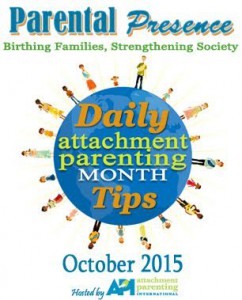
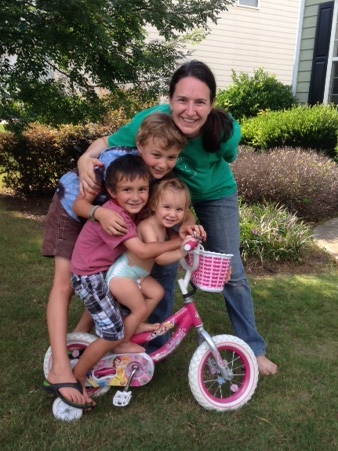
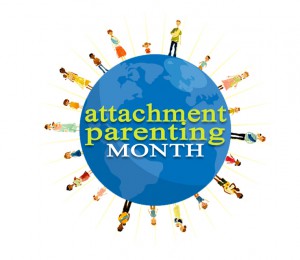

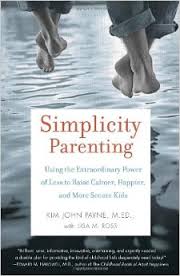 Two passages that stood out to me are below:
Two passages that stood out to me are below:


